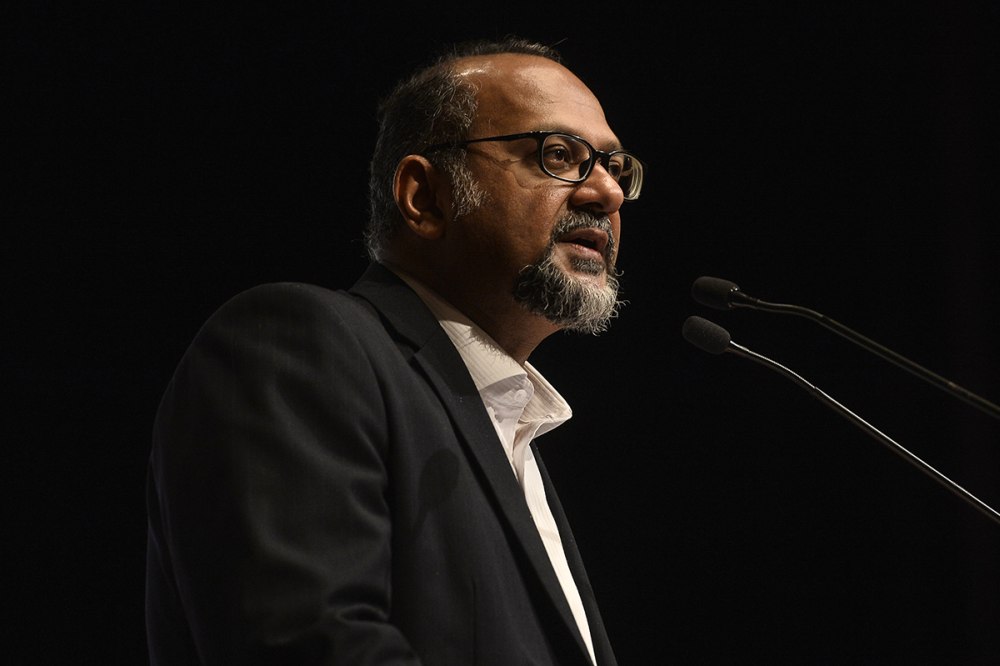KUALA LUMPUR, Aug 28 — The Cabinet has approved the implementation of an RM21.6-billion national connectivity plan that gives equal access to the Internet for both the urban and rural population in the effort to reduce the digital divide, Communications and Multimedia Minister Gobind Singh Deo announced today.
He also said that the National Fiberisation and Connectivity Plan (NFCP) will also benefit those who may otherwise not have the opportunity to participate in the digital economy, such as farmers, fishermen and the Orang Ali community.
“The government views NFCP as a crucial infrastructure project as well as a strategic effort to enhance the competitiveness of the country and the people of Malaysia in this digital age,” he said in a statement.
The NFCP five-year (2019-2023) plan, spearheaded by the ministry, will provide nationwide digital connectivity that is robust, pervasive, high-quality and affordable to all Malaysians, he said.
“In line with the government’s aspiration, the NFCP will bring together the people and businesses in its mission to develop the Malaysian digital economy in the Fourth Industrial Revolution (IR 4.0), narrow the digital gap and generate a constructive environment for new technologies such as 5G,” he said.
Gobind said the NFCP focuses on fibre networks to enable greater digital connectivity. However, alternative technologies such as wireless networks and satellite technology will also be deployed wherever conducive.
“This is in line with the ‘Shared Prosperity’ initiative, in which rural areas will be able to enjoy high-quality and high-speed broadband access,” he said.
He said the NFCP’s main targets include the provision of an average speed of 30 Mbps in 98 per cent of populated areas and gigabits availability in selected industrial areas by the year 2020 and all state capitals by 2023.
He said this comprehensive effort will enhance the economic competitiveness of the country, especially in state capitals and major cities; rural areas and under-served groups to bridge the digital gap; high-impact areas such as industrial areas.
Mobile coverage area without fibre network connection to telecommunication towers (to support 3G, 4G and 5G servides); schools, hospitals, libraries, police stations and post offices; Felda community and indigenous community; and sectors like small and medium enterprises, education, health and agriculture as well as major transport facilities.
Gobind also said that the RM21.6-billion cost of implementing the NFCP, the official launch of which is expected to be held in mid-September, will involve the infrastructure projects in targeted areas that are expected to provide a positive boost to the country’s economy, especially to service providers, small contractors and suppliers.
“This amount will be funded through the provision of the Universal Service Provision (USP) Fund, regulated by the Malaysian Communications and Multimedia Commission (MCMC), and commercially by the service provider.
“The methods of financing via the USP Fund that would be considered are in the form of full fund, matching fund or partial fund to eligible parties.
“These financing methods will help reduce the expenditure of the service provider and the cost savings will benefit consumers through the provision of affordable services,” he said.
Gobind also said that the government hopes that through the NFCP, more people and businesses will be able to enjoy the benefits and advantages of the digital economy not only within the country and regionally, but globally too.
“Among other things, Malaysians will be able to reap the benefits from digital education, e-health and e-sports services. The business community will stand to gain from e-commerce platforms, enabling them to penetrate new markets domestically and abroad.
“Overall, the government hopes that through the NFCP, the living standards of the people will improve and new business models will emerge, leading to more high-paying job opportunities and career prospects,” he said.
Gobind said a special task force chaired by the ministry and comprising related agencies will be set up to coordinate the construction of digital infrastructure in schools, police stations, hospitals and libraries. — Bernama




















